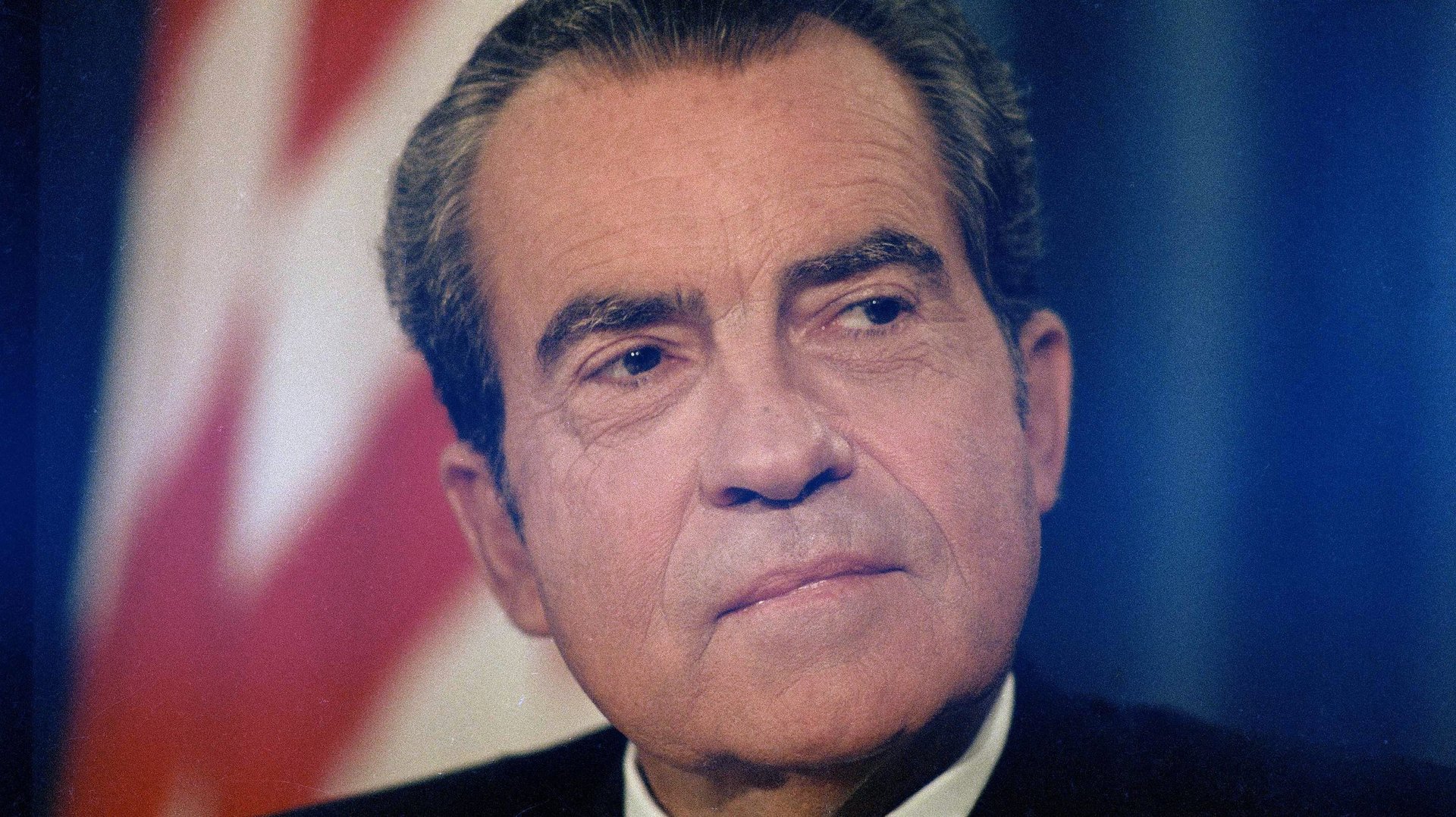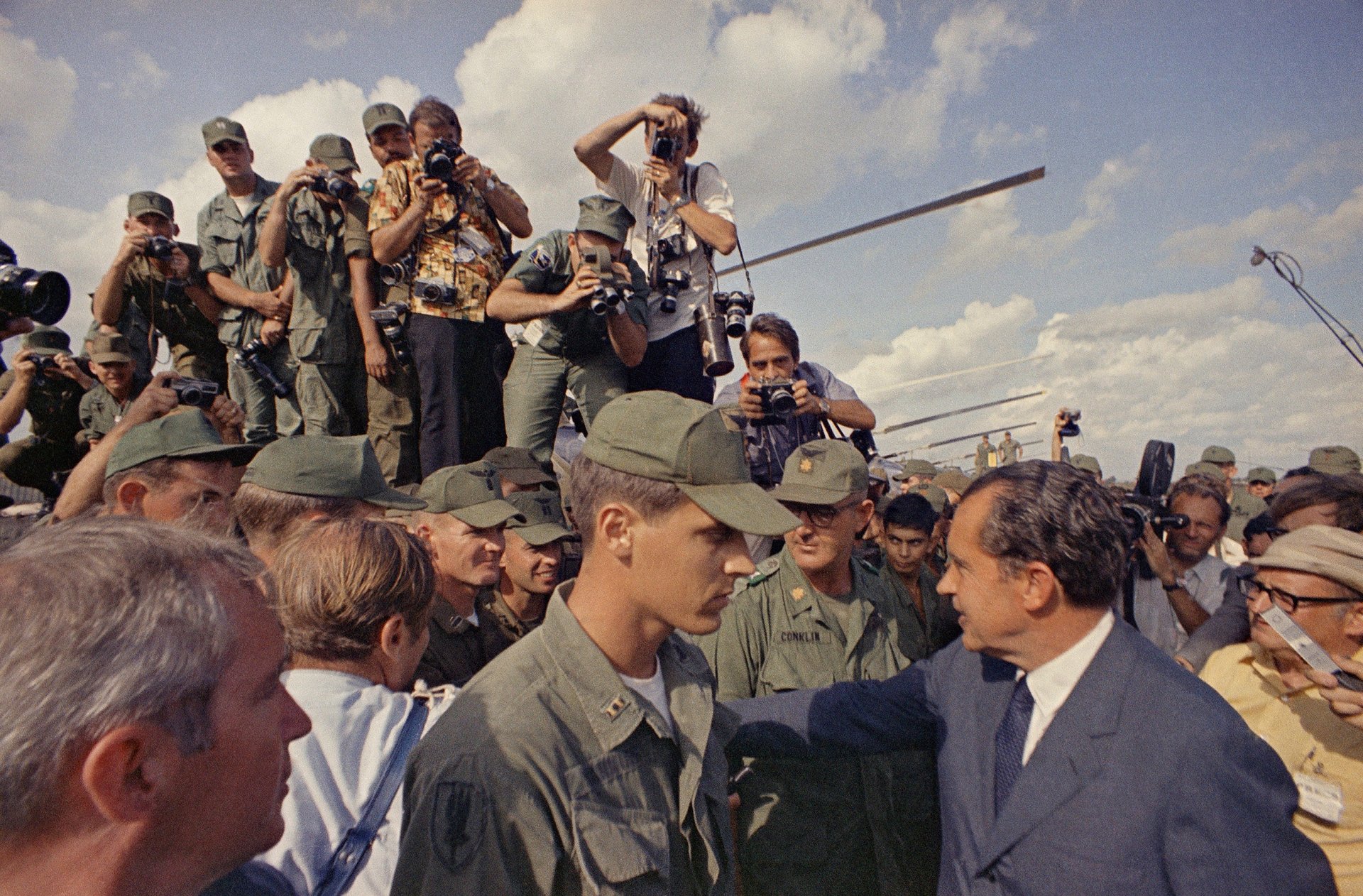Watch: “Peace with honor,” President Nixon’s 1973 speech ending US involvement in the Vietnam War
US president Barack Obama’s trip to Vietnam this week could result in an historical agreement to lift the American arms sale embargo on the Southeast Asian nation, more than 40 years after the end of the bloody conflict that divided both nations.


US president Barack Obama’s trip to Vietnam this week could result in an historical agreement to lift the American arms sale embargo on the Southeast Asian nation, more than 40 years after the end of the bloody conflict that divided both nations.
Over 58,000 American soldiers and more than one million Vietnamese were killed in the 20-year war (known in the US as the “Vietnam War” and in Vietnam as the “American War”), which pitted Communist, Soviet-backed North Vietnamese troops against the South Vietnamese and allies including South Korea and Australia.
While Richard Nixon was elected in 1968 on the pledge to get the US out of the war, it wasn’t until nearly five years later that he could deliver on the promise.

On Jan. 23, 1973, Nixon announced a ceasefire had been hammered out with the Democratic Republic of Vietnam, and that all US troops would come home within 60 days.
His speech‘s key phrase, “peace with honor,” has often been invoked in decades since, as the US struggles to extricate itself from difficult conflicts and historians analyze his troubled legacy.
Nixon spent much of his speech emphasizing what happens next, and the importance of all parties maintaining the ceasefire and committing to peace.
We must recognize that ending the war is only the first step toward building the peace. All parties must now see to it that this is a peace that lasts, and also a peace that heals—and a peace that not only ends the war in Southeast Asia but contributes to the prospects of peace in the whole world.
This will mean that the terms of the agreement must be scrupulously adhered to. We shall do everything the agreement requires of us, and we shall expect the other parties to do everything it requires of them. We shall also expect other interested nations to help insure that the agreement is carried out and peace is maintained.
The war was deeply unpopular in the US, but Nixon also called for American citizens to be proud of the US military’s role there.
Now that we have achieved an honorable agreement, let us be proud that America did not settle for a peace that would have betrayed our allies, that would have abandoned our prisoners of war, or that would have ended the war for us but would have continued the war for the 50 million people of Indochina. Let us be proud of the 2 1/2 million young Americans who served in Vietnam, who served with honor and distinction in one of the most selfless enterprises in the history of nations. And let us be proud of those who sacrificed, who gave their lives so that the people of South Vietnam might live in freedom and so that the world might live in peace.
The peace was short-lived, however. North Vietnamese troops regrouped, and ultimately captured Saigon in April 1975. Vietnam’s government remains tightly controlled by the Communist Party, although its population is one of the most supportive of free markets in the world.
Obama’s visit marks the third by a US president since relations between the two countries were normalized in 1995.